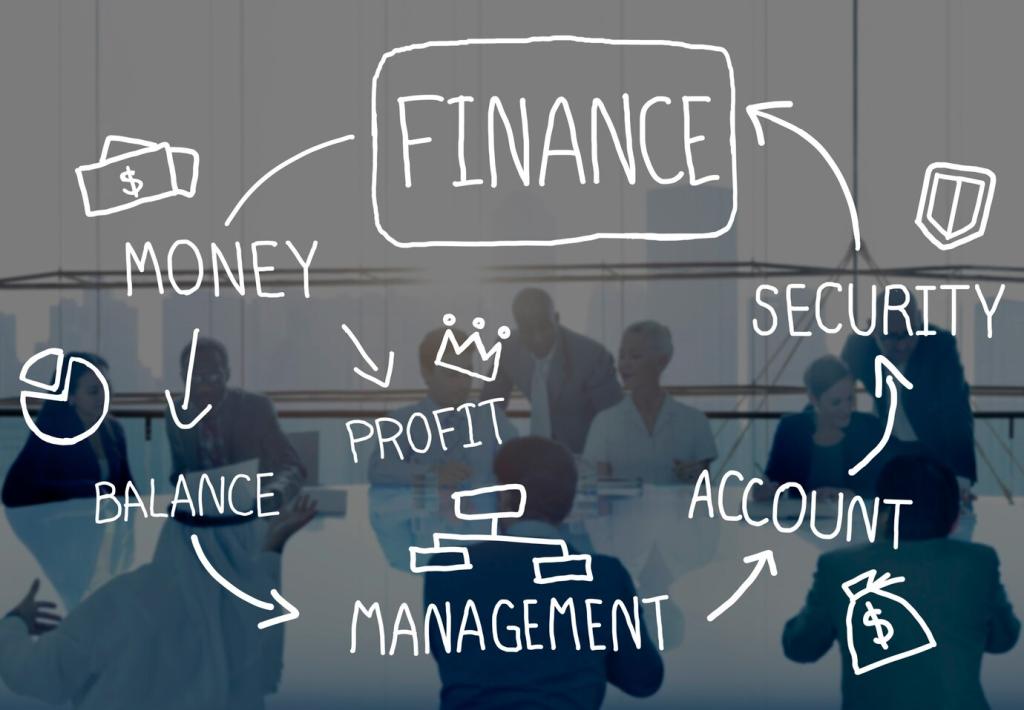
Emerging Trends in Financial Technology: A Front-Row Seat to the Future of Money
Chosen theme: Emerging Trends in Financial Technology. Step into a practical, human story of how money moves next—faster rails, smarter data, safer wallets, and greener choices. Subscribe for weekly insights, and tell us which trend you want unpacked next.
Everyday touchpoints become checkouts
When the payment happens inside the app you already love, friction disappears. Think transit cards in phones, buy-now buttons inside social feeds, and loyalty points redeemable like cash. Where do you most want invisible payments to show up?
Partnership playbooks and revenue models
Winning embedded finance requires banks, fintechs, and platforms to align incentives and share data responsibly. Revenue splits, risk reserves, and clear support paths matter. Share your partnership lessons—or cautionary tales—so readers can avoid costly surprises.
Regulatory lenses and trust by design
As brands become de facto financial brokers, consent, disclosures, and dispute handling must be crystal clear. Build trust with plain-language terms, robust audit trails, and clear off-ramps. Would you accept instant credit if support was chatbot-only?
Real-time networks thrive on standards for addressing, messaging, and irrevocability. Request-to-Pay reduces ambiguity and speeds reconciliation. Tell us: what’s your biggest operational hurdle—core integration, remittance data, or customer education about finality?
Real-Time Payments Reshape Expectations
A neighborhood bakery switched supplier payments to real-time and avoided weekly overdrafts. Savings funded a second oven, and late-night reconciliations vanished. Do you have a similar story? Share it and inspire another small business today.
Real-Time Payments Reshape Expectations
Open Banking and Data Portability
Tokenized connections, granular scopes, and revoke-anytime permissions replace fragile password sharing. Clear dashboards show what you’ve shared and why. Would you grant access for lower fees or richer insights? Tell us your non-negotiables for consent.
Open Banking and Data Portability
With permissioned data, apps can forecast bills, negotiate subscriptions, and automate savings on payday. Personalization must uplift, not manipulate. How do you define helpful nudges versus pushy tactics? Share your red lines and wishlist features.
Open Banking and Data Portability
APIs thrive on reliability, test sandboxes, and transparent change logs. Standards accelerate innovation when paired with strong uptime and support. Are you building on open banking? Drop your favorite tools, libraries, and pain points for the community.
AI Rewrites Risk, Fraud, and Service
Behavioral biometrics in the wild
How you type, swipe, and pause can flag bots without extra codes. It feels magical when it works and invasive when it doesn’t. Would you trade fewer OTPs for subtle behavior checks? Tell us why or why not.
Explainability and fairness
Black-box denials erode trust. Modern stacks log feature impacts, simulate outcomes, and surface reasons in plain language. If you were declined, what explanation would feel fair? Help shape clearer, kinder underwriting letters for real people.
A startup’s first fraud war room
On launch week, a fintech spotted a burst of mule signups. Teams piped events into a rules sandbox, layered ML, and cut losses overnight. What’s your war story? Share tactics that worked—and ones you’d never try again.
Beyond Hype: Digital Assets and Tokenization
01
Using well-governed, stable-value tokens for merchant payouts can compress settlement times and reduce reconciliation friction. Would your finance team accept a new rail if controls were stronger than cards? Tell us what evidence you’d require.
02
Representing traditional assets on modern ledgers can unify recordkeeping and speed transfer. The promise: fewer intermediaries, clearer ownership, faster actions. Where do you see tokenization adding the most value—treasury, funds, or supply-chain finance?
03
Travel rules, sanctions screening, and robust identity checks remain non-negotiable. Tools that embed controls at the protocol and wallet layers will win trust. What compliance features would make your legal team comfortable adopting digital assets?
Zero-Trust Security for Growing Fintechs
Passkeys, WebAuthn, and device-bound credentials reduce credential stuffing and social engineering. Customers notice fewer codes and faster logins. Would you enable biometric logins for higher-risk actions first, or go all-in? Share your rollout strategy.

Thin-file borrowers, richer stories
A steady stream of rent and utilities can speak louder than a missing credit card. With consent, these signals unlock options. What improvements would make you comfortable sharing such data—time-limited access, dashboards, or guaranteed deletion?

Community pilots and real outcomes
Local lenders partnering with fintechs have piloted small lines for gig workers, tied to verified earnings. Defaults fell when repayments matched income rhythms. Share examples from your city so we can map what truly works at street level.
